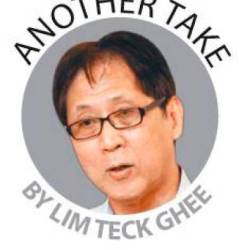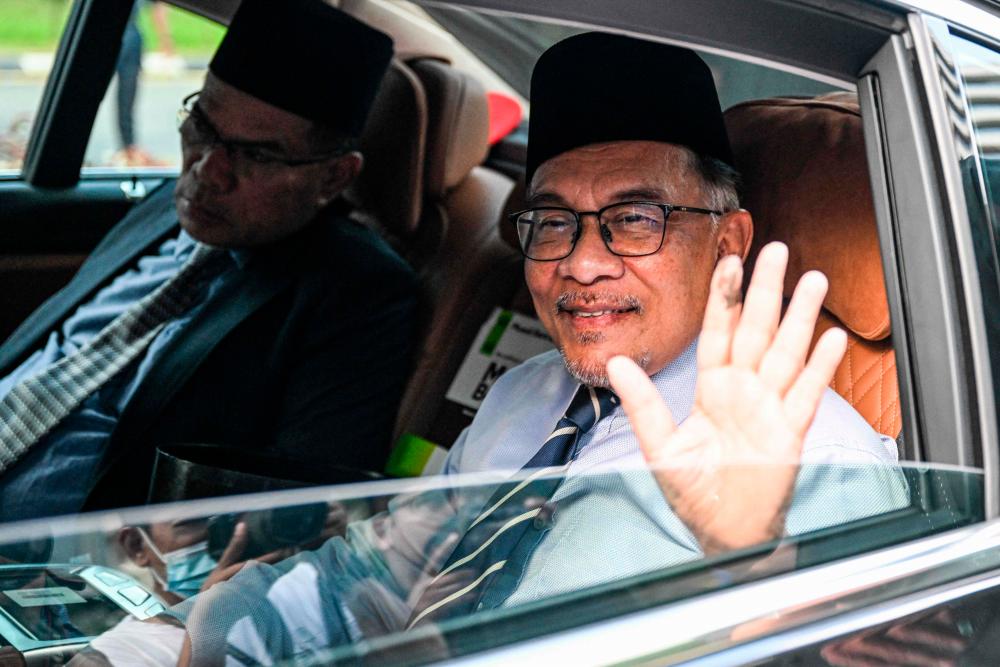THE crisis that engulfed Prime Minister Datuk Seri Anwar Ibrahim’s appointment as prime minister for five days of an unprecedented election aftermath not only gripped the nation. It also caught the attention of the international media including Al Jazeera, CNN, BBC, CGTN, The Jakarta Post, South China Morning Post and other news agencies around the world.
Perhaps the most representative among the reporting was from The New York Times, with its lead commentary headlined: “Anwar, Opposition leader for decades, is now Malaysia’s prime minister” by its Southeast Asia bureau chief.
The article focused on the challenges ahead for Anwar in bringing political stability to a polarised electorate split between voters who want an inclusive and multicultural future and others driven by a conservative Islamic ideology.
Now that we have a unity government led by Pakatan Harapan in place, including the major parties from Sabah and Sarawak, cooler heads and less partisan voices should prevail to take stock of the election results and reflect on what needs to be done to restore cohesion, lessen the divisions and bring reassurance to a country racked by instability and uncertainty since the last election in 2018.
The first observation is that despite the political upheaval, we had a peaceful and incident-free election, even going by the standard of advanced democracies. The record turnout of voters – an estimated 74% of 21 million voters turned out to vote – is testimony that the citizenry continues to keep faith with Malaysia’s distinctive democratic system.
Another positive feature is that racial and religious hyper-ventilation was relatively restrained in the campaign run-up to the election, except for the last public rally of Tan Sri Muhyiddin Yasin who played the religious card in Muar, where the nation’s newest party the Malaysian United Democratic Alliance (Muda) President Syed Saddiq was standing.
Race, religion concerns dominate voters’ decision
Although fine-grain analysis of voter preference breakdown by race is not available, it is clear that overall, race and religion concerns rather than bread-and-butter or class issues were uppermost in voting decisions.
Together with the moral outrage sentiments of voters, they resulted in widespread rejection of Umno and associated Barisan Nasional parties and resulted in a new reconfiguration of the political landscape with PAS, the dominant religion-based party of the country, emerging as the largest single party in the new Parliament.
The election result revealed a deeply polarised nation and produced a hung Parliament.
Unity government’s biggest challenge
Some of the other major outcomes and takeaways to emerge from the election are:
-> The new government, despite its unity objective, will have a fight to keep at bay the combination of Malay and Islamic Opposition representatives in Parliament and at state level. In particular, PAS, with 49 members in the new Parliament and control of the state governments in Kedah, Perlis, Kelantan and Terengganu.
-> It is also clear that the playing up of racial and religious issues has resonance and can contribute to electoral success. How to deal with and neutralise the political leaders and dynamics that instigate and fan the ethno-nationalist and religious forces of extremism will require all of Anwar’s and his Cabinet’s skills and dexterity. But other stake players – not only those in Parliament, but also the fourth estate of media and fifth estate of think tanks and civil society representatives – need to stand up more effectively or the country will relapse into a new and more dangerous cycle of instability and disunity.
The decisive outcome of a unity government highlights the continuing important role of the Yang di-Pertuan Agong in providing the ballast to ensure the nation’s peaceful and harmonious development.
In exercising his constitutional authority to decree the formation of a national unity government and the appointment of the new prime minister, the Yang di-Pertuan Agong Al-Sultan Abdullah Ri’ayatuddin Al-Mustafa Billah Shah has called on politicians and the public to “be rational” and to “move forward for our beloved country”. It remains to be seen whether this call, supported by the Conference of Rulers, can be the guiding spirit and light for the nation’s new parliamentarians when they take office.
Lim Teck Ghee’s Another Take is aimed at demystifying social orthodoxy. Comments: letters@thesundaily.com











